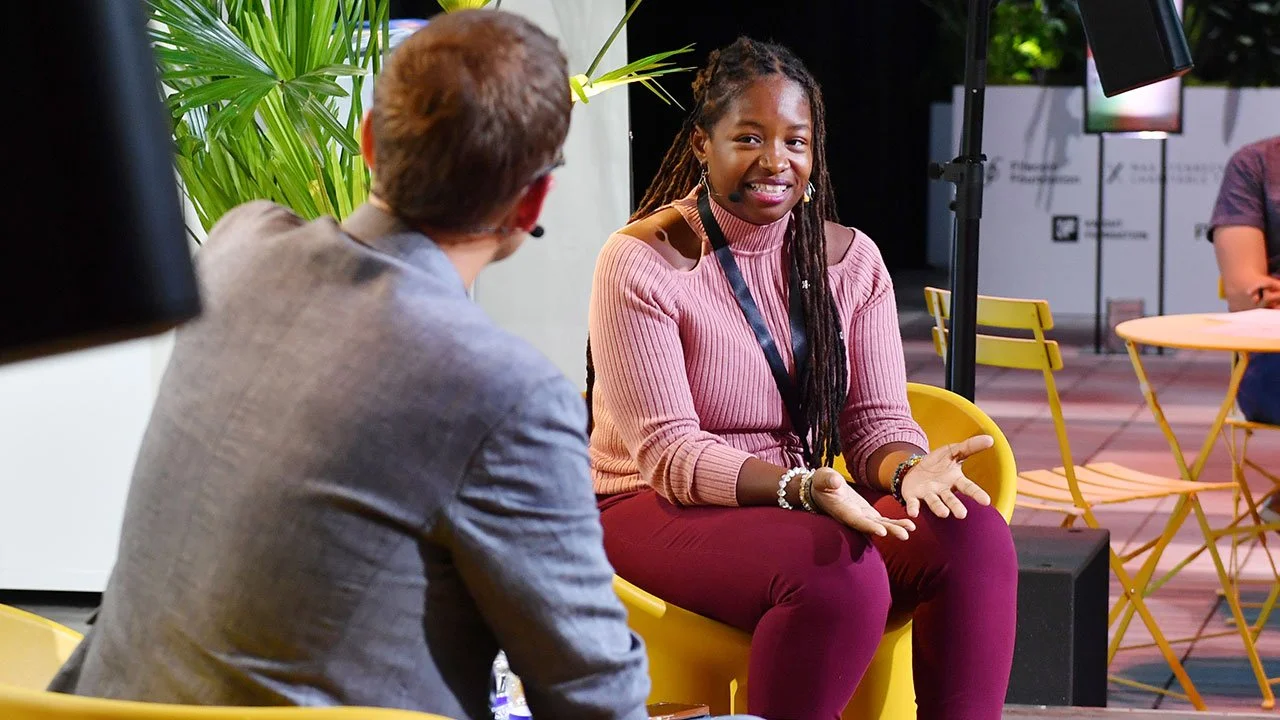All Tech Is Human Library Podcast Series #9 | Diara J. Townes
In the ninth conversation of a sixteen-part All Tech is Human Library Podcast interview series, engagement journalist Diara J. Townes joins David Ryan Polgar for a conversation about the importance of civic engagement journalism. Townes explores her work at the intersection of disinformation and climate change while exploring how the community design principles of Burning Man might help us create a healthier internet. Check out the full podcast series here.
About Diara J. Townes
Diara J. Townes is engagement journalist with a background in environmental science and disinformation research. Townes is focused on building solutions for underrepresented and underserved communities affected by the climate and information crises.
Key Takeaways
Disinformation harms the most vulnerable communities, disenfranchised, marginalized, and underserved; they lack the means to speak up for themselves or push back against their systems.
To look at a problem holistically, it’s important to understand biases, impact, and map the network of stakeholders involved.
Our structures, as they currently stand, don’t allow for a better tech future or information ecosystem. To serve the public, they must be reimagined in a manner aligned with the public interest.
Quotes
“And I initially tried to go in through climate disinformation, people who don't believe that climate change is happening. And I started to detect the same kind of issues of people who are pushing back against the system, but not realizing that the information they had was actually being weaponized against them to believe things that are actually harming them. And at the end of the day, we know…the communities that are most harmed are those who are disenfranchised, marginalized, or underserved don't have those means to speak up for themselves, to push back against those systems.” 3:09 - 3:42
“…So a lot of times what I'll ask students is, 'What, what perspective are you bringing to the table, right? What biases are you bringing to the table? And then how do you step away from that and actually look at who's impacted by this, right?' That's network mapping, stakeholder mapping, and it allows you to really understand the ecosystem of the issue that you're trying to address. And while you're doing that, you also need to look at the research that's around that, right? A lot of people pull from data they pull to get that context so they can understand: So this is what the problem is, now I know how to approach it.” 11:19 - 11:53
“To put it bluntly, a lot of times it's like politics and money. It's the same thing regardless of the industry, or the field, at the end of the day, who's paying for that research? Who's paying, or who's donating to that institution? How is that media entity being supported? And then it comes down to politics as well. Maybe not the politics at the federal level, but politics within an organization that if you have somebody who's been in a position of power 10, 15 years and here you come presenting a new idea that they're like, 'You know what? I haven't been affected by that. I don't really see that as an issue.' It doesn't really allow for change to happen when there are structures in place that are willing to entertain the idea but not actually implement it, and that is an issue that happens across the board.” 13:26 - 14:12
“I'm definitely more of the ‘anarchy, burn it down’ type of person and start again. I think in order for us to really build a responsible and healthy tech future, even just an information ecosystem, we can't continue in the structures that we have. It doesn't allow for it. I think they're too rigid and I think we need to start, maybe it is a public interest internet that I know has been talked about and pushed forward. I think that may be the better route to take versus trying to change the system from within.” 18:49 - 19:17
Learn More About Diara J. Townes
Website | Twitter
Credits:
David Ryan Polgar - Moderator
Diara J. Townes - Interviewee
Unfinished Live - Producers



